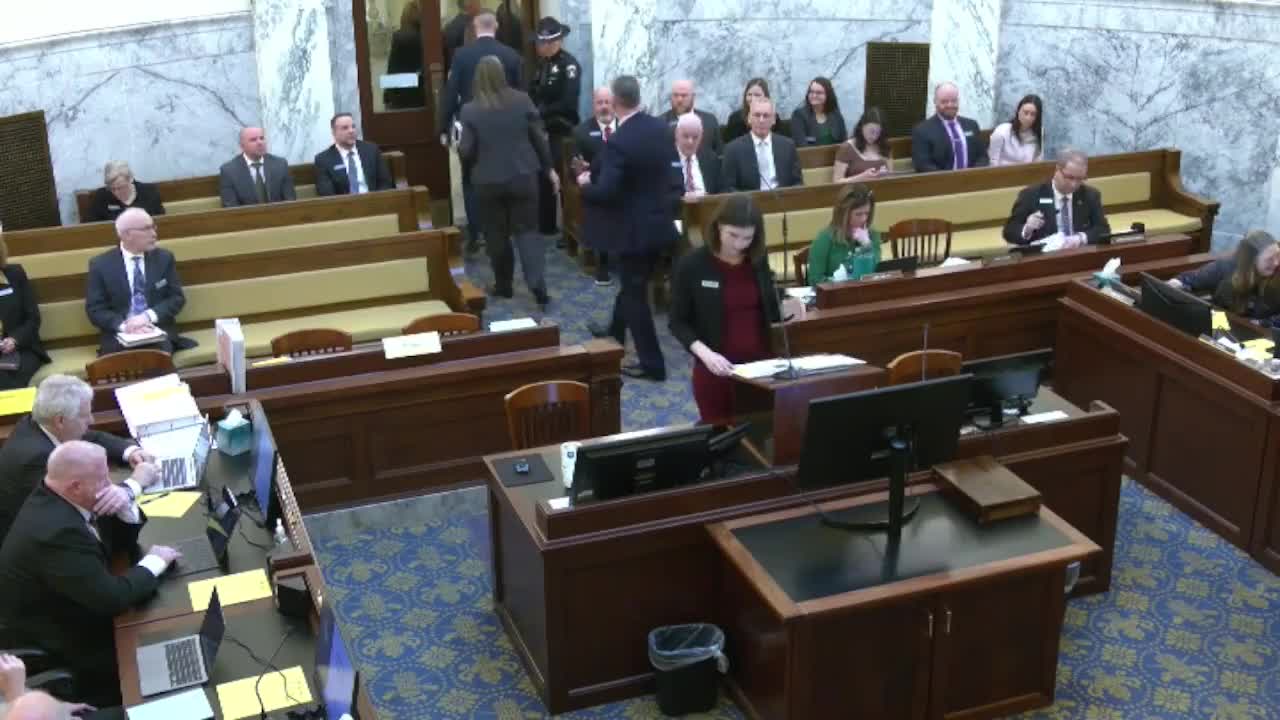Controller asks Joint Finance to bring LUMA on‑budget as BIIF expires; warns staffing cuts would hamper payroll and audit work
Get AI-powered insights, summaries, and transcripts
Subscribe
Summary
State Controller Brandon Wolf told the Joint Finance‑Appropriations Committee that the Business Information Infrastructure Fund (BIF) that paid much of LUMA's costs will expire June 30 and the controller's office needs general‑fund and dedicated funding to maintain staff and infrastructure.
State Controller Brandon Wolf and legislative analysts told the Joint Finance‑Appropriations Committee that the state’s enterprise resource management implementation (LUMA) must be brought fully onto the controller’s budget after the Business Information Infrastructure Fund (BIF) sunsets at the end of the current fiscal year.
Frances Lippitt, the Legislative Services analyst, told the committee the controller's office requested a FY26 package primarily to move costs now covered by the BIF onto the office's appropriation. The office's request includes personnel and infrastructure costs and is structured as a mix of general‑fund and dedicated‑fund items; Lippitt described a total FY26 request in the mid‑teens of millions to fund LUMA positions and infrastructure previously paid from the BIF.
Controller Brandon Wolf said the BIF was established to pay implementation and sustainment costs for LUMA and that the fund will expire on June 30. "We have 47 employees working on the LUMA project. The 13 that we asked for... we did not receive the funding for those [previously]. Those were to be paid through the BIF process," Wolf told the committee. He added that, without the FY26 appropriation to shift those costs, "we would almost cut the LUMA team in half," a step he said would endanger the controller's ability to process payrolls, pay vendors on time and close books for audited financial statements.
Details of the request: Legislative Services described the FY26 request as consisting of (a) general‑fund appropriation to pay for 7 additional FTEs (personnel cost component cited at roughly $2.16 million), (b) $800,000 to cover LUMA infrastructure and overhead inside the computer service center, (c) two financial‑specialist positions to expand shared‑services offerings for smaller agencies, and (d) reallocation of leadership allocations back to the general fund. Lippitt summarized the general‑fund portion of those line items as about $9.856 million and separately noted a $5.5 million dedicated‑fund appropriation request for the computer service center to cover LUMA infrastructure billed to agencies.
Risk and consequences: Wolf and committee members discussed operational risks if the requested funding is not approved. Wolf said the controller's office is already behind on statutory financial close timelines (he told the committee the office was eight weeks late in producing its closing for the annual comprehensive financial report in the current cycle) and that cutting roughly half of the LUMA team would jeopardize on‑time payroll processing, agency support and timely audits. Representative Orrin and others emphasized the need for continued support for agency fiscal staff to complete agency closings and federal audit work, and Wolf said the requested positions would help provide that agency support and accelerate reporting.
Controller's posture and lessons learned: Wolf said the LUMA system is functioning and that some peers in other states have not yet gone live, but the implementation has required substantial change management, training and ongoing support. He offered to share lessons learned from the LUMA implementation with legislators and other states and stressed that continuing investment is needed to stabilize operations and to reduce future dependence on temporary, implementation‑specific funding.
Ending: Committee members pressed for details about the BIF sunset and requested cost and staffing breakdowns; the controller pledged to provide further information and to work with committee staff on transition plans and reporting.
